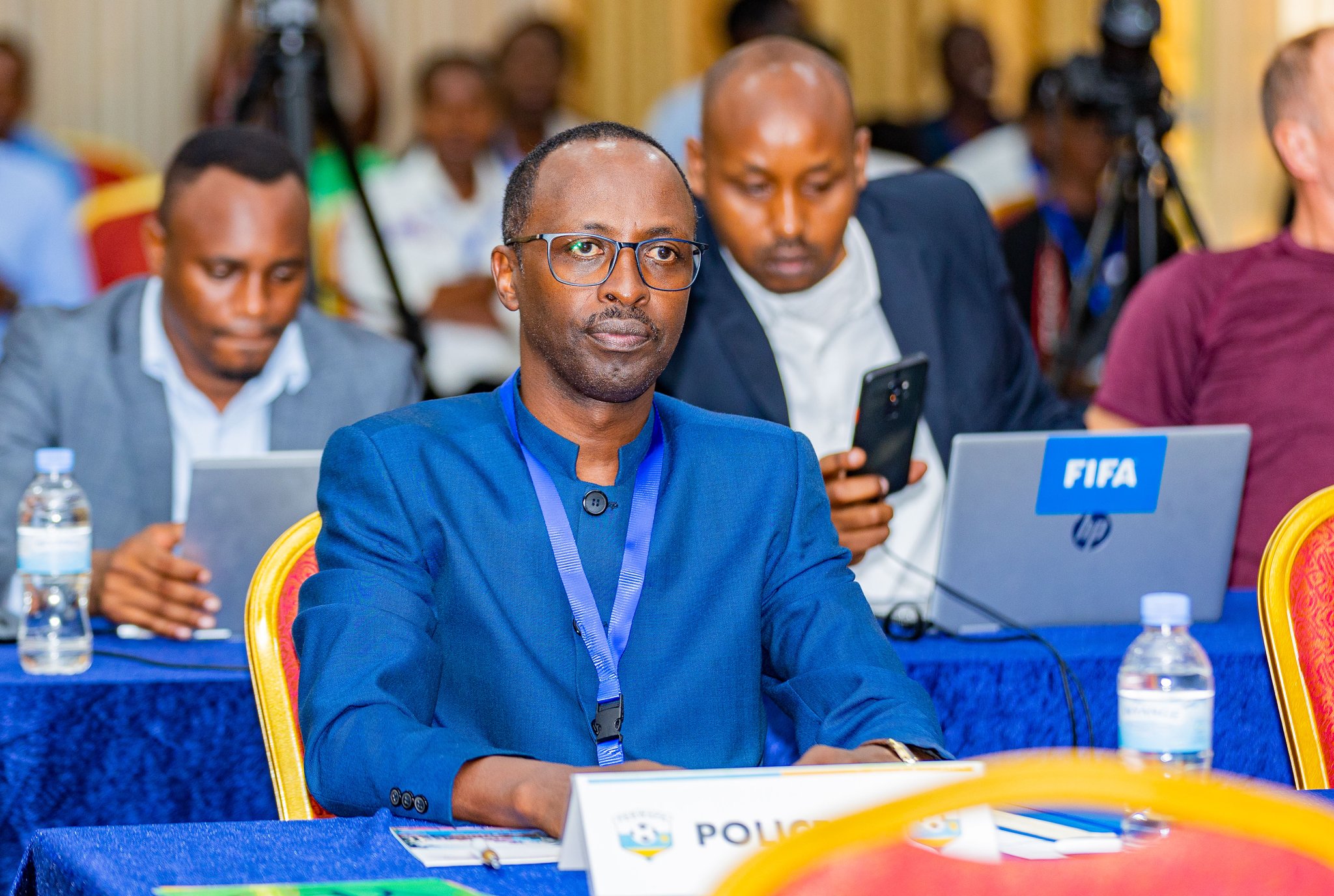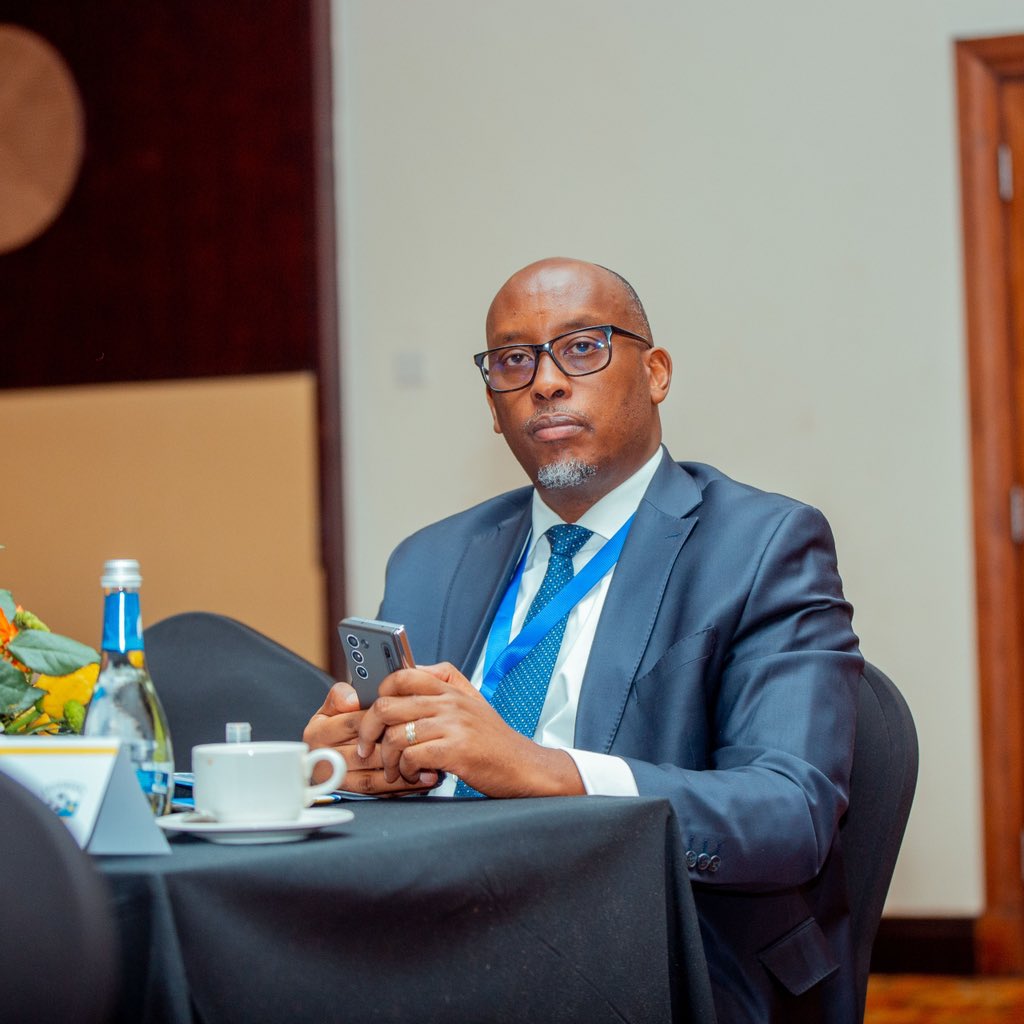The Rwanda Football Federation (FERWAFA) was established in 1976 and has been led by 16 presidents, each leaving their mark on Rwandan football. These leaders include prominent figures in national politics and key positions in government and political parties. Among them, Faustin Twagiramungu stands out for leading FERWAFA between 1987 and 1988 and later serving as Rwanda's Prime Minister after the 1994 Genocide against the Tutsi.
InyaRwanda.com has curated the achievements, challenges, and historical milestones of all 16 FERWAFA presidents, showcasing how their leadership shaped the course of football in Rwanda. Here are their stories:
1. Dr. Gasarasi: 1976-1978
Dr. Gasarasi was the inaugural president of FERWAFA, navigating through a challenging time for football in Rwanda. At the time, football was played mainly for enjoyment, with no formal rules or competitive teams. During his two-year leadership, limited progress was made in establishing robust regulations or advancing the sport.
2. Mudenge Canisius: 1978-1982
Mudenge led FERWAFA for four years amidst heavy political interference. Many decisions were influenced by political leaders with vested interests in specific teams, undermining fair play. The national football team struggled for achievements during this period, with management often criticized for authoritarian methods.

3. Félicien Ngango: 1982-1986
Ngango, a PSD party leader, served for four years. During his tenure, popular clubs like Kiyovu Sports, Rayon Sports, and Mukura rose in prominence, attracting a growing fan base. However, political interference remained a significant barrier to progress in football administration.
4. Mayuya Stanislas: 1986-1987
Mayuya, leading FERWAFA for just a year, governed with a reportedly dictatorial style. His sudden death in 1987 under politically motivated circumstances marked the end of a brief leadership that made little impact on Rwandan football.
5. Faustin Twagiramungu: 1987-1988
Better known for his political career, Twagiramungu presided over FERWAFA for one year. His tenure was controversial for favoritism towards Stir FC, his former team, and for disregarding regulations, leading to disputes with his Secretary General, Jean Kabanda.

6. Dr. Emmanuel Ndagijimana: 1988-1991
Under Ndagijimana’s leadership, football gradually gained popularity in Rwanda. The national team Amavubi saw some action during his tenure, with local clubs slowly receiving recognition internationally. Challenges persisted due to the lack of comprehensive regulations for football governance.

7. Mvuyekure Viateur: 1992-1993
Political favoritism plagued Mvuyekure’s leadership, benefiting teams like Etincelles and military clubs such as Pantheres Noirs. Rwanda's football administration was disrupted in 1994 due to the Genocide against the Tutsi.
8. Gasasira Ephraim: 1994-1995
Gasasira led FERWAFA during Rwanda's recovery after the Genocide. Serving for six months, he organized elections, paving the way for Gen. Caesar Kayizari to take charge.
9. Lt. Gen. Cesar Kayizari: 1995-2006
Gen. Kayizari transformed FERWAFA over a decade. Rwanda achieved milestones such as participating in the Africa Cup of Nations (CAN) for the first time in 2004 and winning its sole Cecafa Cup title in 1999. His tenure saw financial prosperity in Rwandan football and improvements in local tournaments.

10. Maj. Gen. Kazura Jean Bosco: 2006-2011
Kazura bolstered football infrastructure, upgrading stadiums like Huye and Kigali’s Amahoro. Focused on youth development, his administration faced challenges such as declining national team performances toward the end of his term.

11. Ntagungira Célestin ‘Abega’: 2011-2013
A renowned international referee, Abega aimed to improve Rwanda’s football standards. Despite efforts to secure sponsorships, his leadership struggled to elevate national teams' performances.

12. Nzamwita Vincent ‘De Gaulle’: 2014-2018
Nzamwita faced criticism for controversies including favoritism, mismanagement, and internal disputes. Though he introduced sponsorship agreements and hosted CHAN 2016, scandals marred his leadership.

13. Rtd Brig. Gen Sekamana Jean Damascène: 2018-2021
Sekamana navigated FERWAFA through challenges including COVID-19, financial constraints, and declining fan engagement. Resignation marked his incomplete tenure.

14. Nizeyimana Mugabo Olivier: 2021-2023
Nizeyimana focused on youth leagues but faced setbacks from internal conflicts and mismanagement issues under his Secretary General. Despite efforts, his leadership faced criticism for its inefficiency.

15. Munyantwali Alphonse: 2023-2025
Munyantwali emphasized improving the image of Rwandan football, reviving public interest in the sport, and fostering youth development. His initiatives saw success with the national team’s notable achievements during his tenure.

16. Shema Ngoga Fabrice: 2025-2029
The current president, Shema, promises innovation, growth, and a united executive team to advance Rwandan football. His tenure begins with hope for significant progress.

Source: Kigali Today, Umuryango & Igihe
